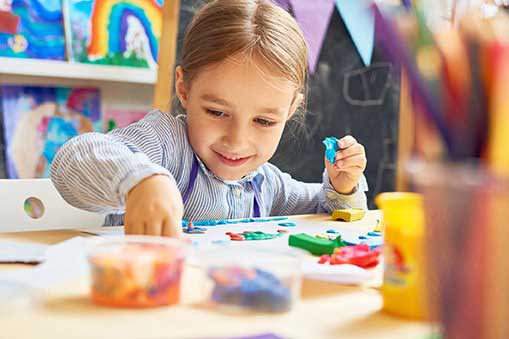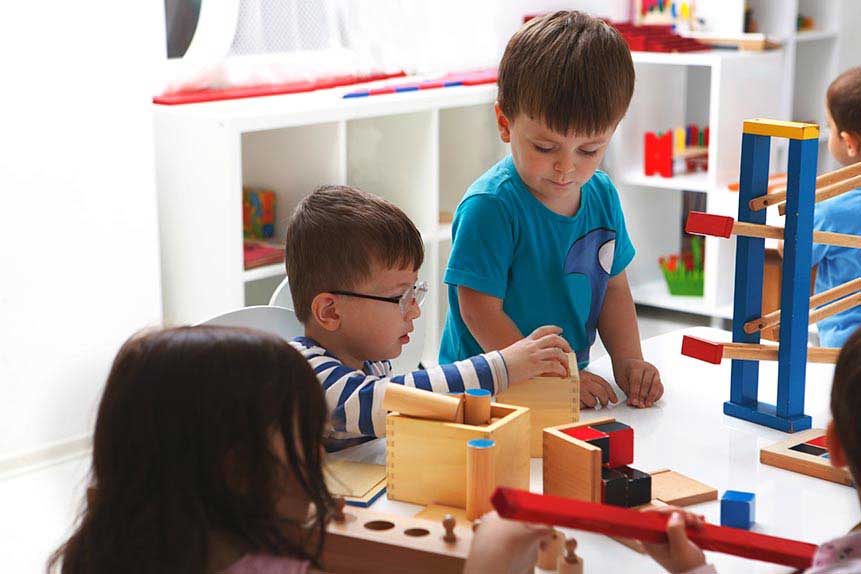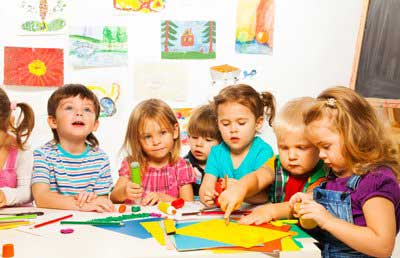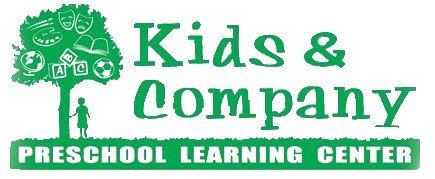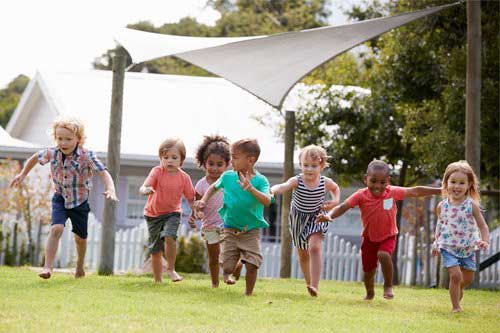Preschoolers and Independence: How to Help Your Child at Home
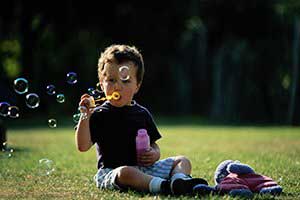
Your preschooler is completely self-sufficient, in-control and an A+ listener—at school that is. Even though the teacher raves about your little learner's ability to follow directions, clean up after playtime and do things (such as putting on her own jacket) without adult help, you just aren't seeing those skills at home. What is going on?
Don't stress. This is completely normal. The seemingly Dr. Jekyll and Mr. Hyde routine of behaving one way at preschool and another way at home is common and typically isn't anything to worry about. Of course, that doesn't mean you won't daydream about your child acting like her school-self when she's around you.
How can you help your preschooler to act independently, cooperate with you (or siblings) and behave in more acceptable ways at home? Take a look at these tips for getting your child to show off some of that "school-time" behavior when she's around you.
Take a Step Back
It's tempting to always "do" for your child. You want the best for her, and when you see your preschooler struggle, it kind of breaks your heart. Whether she can't seem to get her shoes on or she keeps spilling the box of blocks she's trying to clean up, you feel that parental need to step in and take over. Wait just a moment here.
Why can your child do these everyday activities at school but can't seem to get the hang of them at home? It's likely that her teacher isn't following her around and taking over each and every task. When the teacher steps back and lets the class of kids try to act independently (whenever it's age and developmentally appropriate), they step up. After all, they have no other option.
When you take over a task, you are giving your child another option. And, she knows it. No one is saying that your child needs to be 100% independent. She's only in preschool. But with tasks that she is capable of mastering, you can feel comfortable stepping back and letting her take over. These may include getting dressed, using the bathroom, putting away toys and feeding herself (eating, not the actual food prep).
Encourage Problem Solving
Your preschooler is a tornado in the playroom. Her toys are everywhere, and the bins that you stash them in are all over the floor. When you ask her to clean up before eating dinner, she just stares at the mess. Then she walks away. She's confused about what to do. There are so many toys and so many bins. Plus, those bins have to fit back on the shelves in some way. At school, she'd spend some time problem-solving and figure out what to do. She certainly wouldn't leave the scene and expect someone else to take care of it.
Curriculum Connections
Understanding how to use technology is absolutely essential for children who will eventually enter into a tech-filled workplace and world. However, technology doesn't have to function as a stand-alone lesson.
Preschool teachers may use computers, tablets and other devices to teach young children about technology and the basics of its use - like how to turn on a computer, click on what you want to see and use the internet for research. However, they can also use tech-time activities as a way to connect to other parts of the pre-K curriculum.
The preschool teacher can use computer software, the internet and mobile apps to help their young students learn about an array of different concepts. These concepts can include anything from number identification and simple addition to reading and writing letters. Along with the basics, computers can help children to explore science concepts, learn about history and even create art.
Praise the Positive
This is a tricky one. Obviously, praise is a good thing. Your child responds well to it, and it's an easy way to boost her confidence. But you don't want to pile on general praise 24-7. Limit praise to the situations when your child actually deserves it. Along with that, make sure that praise is specific. It can also include encouragement when it comes to adding on to or continuing the behavior.
For example, if she's resisting eating any of the healthy foods you serve for dinner, you don't have to throw a praise party just because she eats one green bean or squeal, "Great job!" over and over again. Instead, try something such as, "I'm proud of you for trying a new food. Let's keep going and try more."
If your child needs some extra encouragement learning to act independently or cooperate with, the school setting can help. Learn more about preschool and what it can do for your child, by calling Kids & Company.

